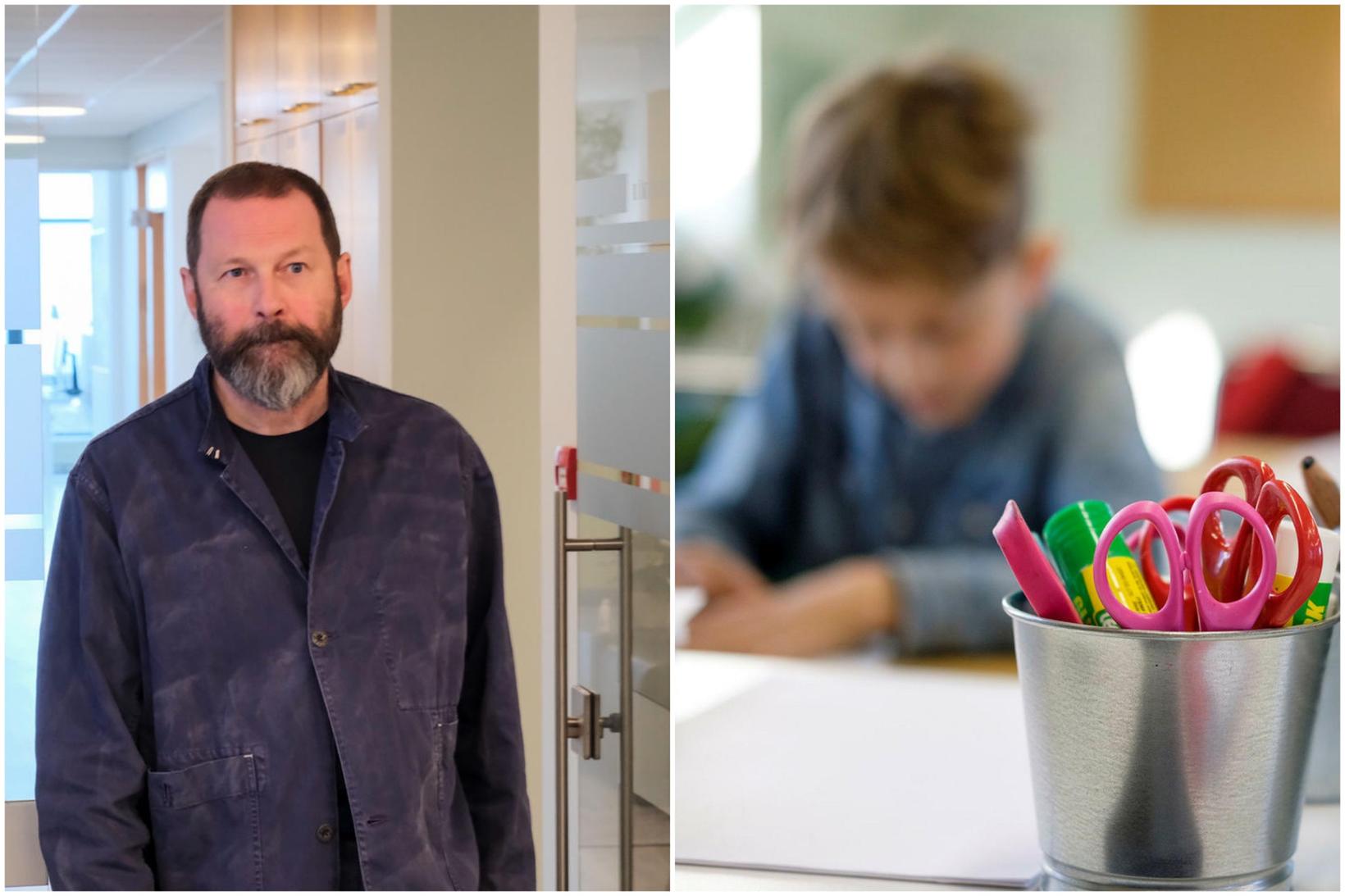"There is a risk that such disputes will become more intense"
The State Mediator believes that the government is working to find a solution to the dispute. Composite image/mbl.is/Kristinn/Hari
"As always, there are all kinds of conversations between the parties and they are continuing. We are actively looking for ways to resolve this dispute. But no decision has been made to convene a formal meeting," says Ástráður Haraldsson, the state mediator, in an interview with mbl.is, about the wage dispute between teachers, the state, and municipalities.
The negotiation committees last met on Wednesday and tried their best to find a basis for further talks, without success.
As soon as Haraldsson sees a reason and considers it useful for the parties to meet formally, he will call a meeting. At the moment, he believes that it will not be effective.
"Sometimes it is not worth continuing meetings because it could escalate the disputes. Then you try other methods. Collective agreements are made using all sorts of methods, we have made collective agreements where the parties have never met, perhaps in separate buildings. All methods that can be effective are being used and will continue to be used.”
Do not see the proposal in the same light
The chairman of the Teachers’ Union said in an interview with mbl.is on Friday that teachers had submitted a proposal to make shorter collective agreements, for 18 months or up to three years, and thus take shorter steps only regarding the salary component, which is one of the main sticking points in the dispute. However, the state and municipalities have not responded to that proposal.
However, the chairman of the negotiating committee of the Association of Icelandic Municipalities (SÍS) said in an interview with mbl.is yesterday that teachers had not submitted a proposal for a shorter contract. The same proposal had only been submitted in modified form.
“They just wanted to get their salary increases earlier, that’s what this contained. But they were completely opposed to making any changes that we want to see,” said Inga Rún Ólafsdóttir, chairwoman of the SÍS bargaining committee.
Teachers have, for example, said that they are not prepared to make changes to the working hours arrangement, which is one of the ideas that have been put forward by the municipalities.
Don’t know who said what to whom
When asked about the teachers’ proposal for a shorter contract, Haraldsson says that various ideas have come up, including negotiating for a shorter or longer period.
“These are all pieces of the puzzle that could affect the overall picture. There is no point in chasing after who said what to whom, when, because I don’t know exactly and I don’t want to know. We are trying on positive grounds to find some solution to the issue and we are not giving up on it.”
Don’t you think the conversation has become more heated?
"I'm not sure, but by the nature of the matter, if it comes to actual conflict, there is of course always a risk that such disputes will become more intense and get sour. That is why it is important to try to avoid conflicts in the labor market."
I know that the government is watching closely
On Friday, Magnús Þór Jónsson, chairman of the Icelandic Teachers' Union, said that teachers called for the government to step into the talks and cut the cord in the dispute. Agreements could not be reached without the government's involvement.
Haraldsson says he cannot judge whether it is necessary at this time.
"I know that the government has been monitoring the matter and I know that the government has been in conversations with the parties. I think the government is working to help the parties find a solution to the issue, but I don't know exactly how that will work out.”
Strikes to begin next Monday if no agreement is reached
If no agreement is reached by the end of the month, strikes will begin in fourteen kindergartens and seven elementary schools on Monday, February 3. The Icelandic Association of Secondary School Teachers has also announced that a vote will be held on indefinite strikes in several secondary schools, after the peace obligation ends at the end of the month.
The chairman of the Icelandic Teachers' Union has said that he does not rule out a general strike if no agreement is reached by the end of February.
Parents' lawsuit heard this week
A group of preschool parents has sued the Icelandic Teachers' Union, on behalf of their children, over teachers' strike actions, which the parents believe are illegal. The case will be heard in the Reykjavík District Court this week.
The case involves a group of parents of children at the four preschools where preschool teachers went on indefinite strike action before the New Year. The actions lasted for five weeks, or until the strikes were postponed by an agreement on a peace obligation, which ends on February 1.
Strike actions at other school levels were temporary and the parents want a ruling on whether the arrangements for the teachers' actions in preschools were legal, as they only affected a small group of children for an indefinite period.






/frimg/1/57/87/1578747.jpg)





